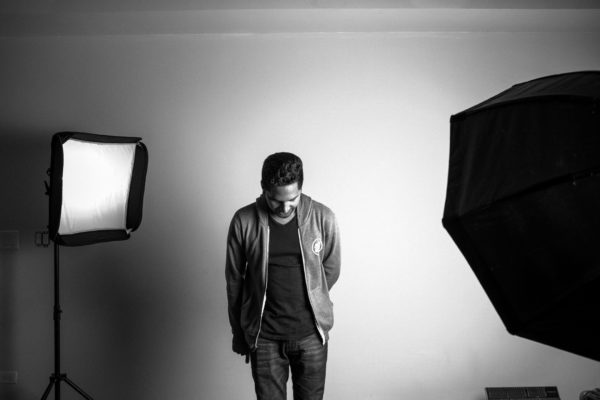“Can you slate your name for camera, please?”
If you are a professional actor, you’ve heard these words more than a few times. You know, it’s that thing you do before you begin your audition so the casting director and producers can keep track of you. Simple compared to the three pages of sides you’re about to launch into. But what about those first five precious seconds – how significant are they?
“It takes only three to five seconds to make a first impression, but it can take a whole career to undo it,” says Dana May Casperson, author of Power Etiquette: What You Don’t Know Can Kill Your Career.
Your talent, your ability to assume a role, your preparation, and even the conscious choice you make to dress appropriately are all incredibly important elements that casting directors keep their eye out for, but whether the director and producers realize it, they have already categorized and made decisions about you that are difficult to undo. Before you’ve said the first line of dialogue, a permanent impression of who you are and whether or not a director would enjoy working with you has already been set.
Your body language speaks volumes – and actors know this. Performers are trained to be pretty conscious about the way they use their bodies – most professional actors know how to make their way into a room without slumping or tripping over their own feet! But what is surprising is how many actors puff themselves up, appearing overconfident (and insecure) or have a subtle self-consciousness about their movements that betrays their nerves and uncertainty. Actors who try to come off as cool and collected can often appear “bored” or “low energy” to a casting director.
As an Alexander Technique teacher here’s where I come in. My specialty is helping performers to become aware of habitual patterns, both physically and in their thinking. And most importantly, we figure out together how they might be getting in their own way when the nerves kick in.
You see, that uncomfortable feeling you get at auditions (or perhaps when the cameras are rolling) begins with the fear response (also known as fight-or-flight, or as I like to all it, Fight/Flight/Freeze). An unconscious tightening of your neck which pulls your head back and down on your spine cascades into a raising up and tightening in of your shoulders, a holding of your breath, sweaty palms, shaky knees, weird tics… you get the picture. Many actors I speak with say they always do their best work when they don’t care whether they book the job – and that is usually because the nerves aren’t there to trip them up. One popular coping strategy actors tell me they use is that they “pretend not to care” whether they book the job. But when you think about it, that’s kind of a crazy system, isn’t it? How can you possibly do your best work when you are telling yourself again and again that you don’t care if you get the job!?
What I’m here to tell you is that the nerves are not a bad thing to have in an audition situation! Adrenalin, quick thinking, and heightened senses can strengthen and enhance your performance. Most importantly, the fear response can help you stay present, and when you think about it, isn’t that where your best work lives?
So Jenn, this all sounds great. But HOW??? How do you find clear-headedness, confidence, ease and authenticity the moment you need it most? How do you walk in, greet the casting director, and slate as your best self?
The first step in giving a great and lasting first impression is understanding what is physically happening to you when you “lock up”. As I described above, when Fight/Flight/Freeze is triggered, there is a tightening that occurs right where your skull meets your spine at the atlanto occipital joint. This place is actually higher and deeper in than you might think. This is where an Alexander Technique teacher begins – by helping you to pause, take note of the tension, and then using their hands in a gentle manner, help you learn to release this excess tension at that spot and throughout your whole neck. With this hands-on guidance, actors immediately report feeling lighter, taller, more balanced, and available.
So back to the slate and that dreaded first impression. The actor who can walk into the room in a present, alert, focused, yet easy and authentic manner is the actor I’d like to work with (and notice I didn’t say the actor who looks present. This work is about being, not pretending to be). And beyond that first impression, the actor that is present, alert, and focused is going to do his best work every time.








